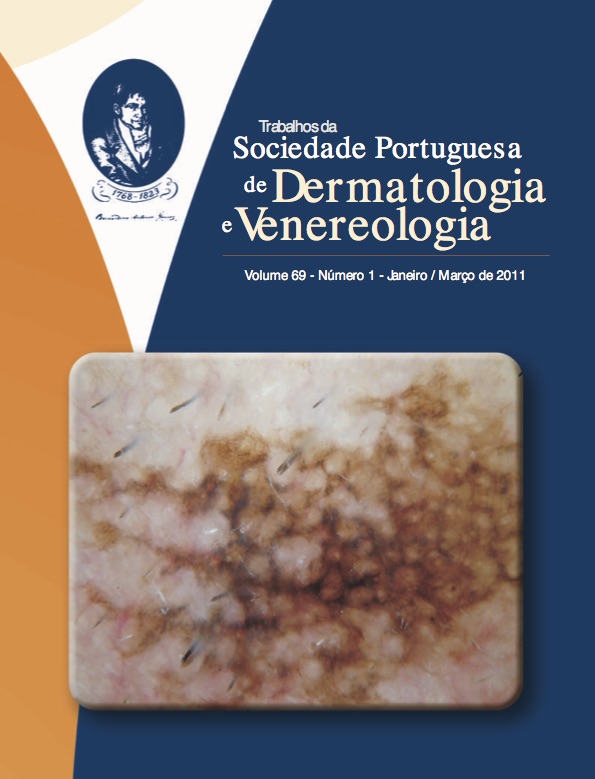TYPE 1 IG-E MEDIATED ALLERGY TO HUMAN INSULIN AND INSULIN ANALOGUES IN ASSOCIATION WITH HYPERSENSITIVITY TO BETA-LACTAM ANTIBIOTICS – A CASE REPORT
Abstract
Insulin, a crucial therapeutic agent for diabetes mellitus, has been rarely associated with hypersensitivity events, particularly after introduction of recombinant human insulin analogs. The authors describe the case of a 69- year-old type-2 diabetic patient presenting with recurrent urticariform lesions on the sites of subcutaneous injection of Humalog® Mix 25 insulin, arising minutes after the administration and regressing spontaneously within hours. This condition had started one year before, soon after starting insulin analogues due to insufficient disease control with oral antidiabetic drugs. The patient denied any other symptoms and had no known allergies, except an unspecific generalized cutaneous reaction after intramuscular penicillin in childhood. Prick tests revealed positive reactions to all tested human insulins and insulin analogues. Patch tests with the Portuguese Baseline, Metal and Excipient Series were negative, except a non relevant reactivity to silver nitrate. Serum IgE was moderately increased (312 UI/ml) and RAST tests were reported as class 3 for human, bovine and porcine insulins, and class 2 for beta-lactam antibiotics. No further recurrence of cutaneous lesions was observed after insulin suspension and a reasonable glycemic control was achieved with complex oral anti-diabetic agent combinations.
Type 1 IgE-mediated allergy to insulin analogues is rare and eventually severe, demanding a precocious diagnosis and suspension of the treatment. In many diabetic patients this might represent a significant therapeutic challenge, and a multidisciplinary approach is therefore recommended.
Downloads
All articles in this journal are Open Access under the Creative Commons Attribution-NonCommercial 4.0 International License (CC BY-NC 4.0).








